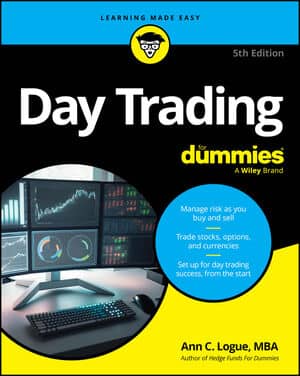You don’t have to hire someone to do your taxes, but you probably should. Day trading generates a lot of separate transactions to track, and the tax laws are tricky. Mistakes can end up costing you your entire trading profit.
Do yourself a favor and find yourself a tax expert. You can talk to other traders, get references from the attorneys and accountants you work with now, or even do Internet searches to find people who understand both IRS regulations and the unique needs of people who frequently buy and sell securities, whether or not the IRS calls them traders.
Types of tax experts
Tax experts fall into several different categories, and knowing which is which can help you determine who is best for you:
Certified public accountants: Certified public accountants studied accounting in college and passed exams testing their knowledge of a wide range of accounting subjects. Because much of accounting involves income tax preparation, many CPAs specialize in this. CPAs generally have the best combined knowledge of tax laws and tax preparation techniques, but not all of them specialize in or even understand day trading.
*Enrolled agents: Enrolled agents specialize in tax preparation. They receive registration from the IRS after passing a two-day, eight-hour exam covering only tax topics, which is what they know best. They may not be so good at helping you with other accounting needs, such as preparing payroll for your office assistants.
Tax attorneys: Tax attorneys usually work with CPAs; they are called in to study the legality of proposed strategies or represent a client in tax litigation. They aren’t appropriate for most traders, but there may be situations that call for one.
Storefronts and volunteers (probably not a good idea): Every winter, vacant buildings are turned into tax preparation centers, and the IRS promotes its cadre of volunteers who help people with their taxes. These services can be a boon to the average person who lacks the time or patience to deal with the tax forms.
But if you are trader, you’re going to run into complex problems that most of these services are not prepared to handle, such as the many considerations that go with taxes on currency trading discussed previously.
Only CPAs, enrolled agents, and tax attorneys are allowed to represent clients before the IRS in audits, collections, or appeals. Other paid preparers can represent clients in an audit, but they can’t handle more complex matters.
Questions to ask a prospective tax adviser
After you identify a few prospective candidates to prepare your taxes, talk to them and ask them questions about their experience. You want someone who understands things such as the wash-sale rule (which can limit the deductibility of your losses) and the mark-to-market election (which can allow you to deduct more losses) and who can help you determine what you owe in taxes and not one penny more.
Here some things you should ask a potential tax preparer:
What investors and traders have you worked with? For how long?
Have you worked with traders or investors in my state? Can you prepare my state return?
Have you helped traders make the mark-to-market election?
What is your experience with the wash-sale rule? How will my trading style be affected by it?
Who will be preparing my return? How involved will you be?
Do you offer tax analysis of trading strategies?
What’s your audit record? Why have your clients been audited? What happened on the audit?
What are your fees?
By law, tax preparers cannot base their fees on the size of your tax refund, and they cannot guarantee you a refund. Any preparer who does these things either does not know the law or is willfully breaking it.

